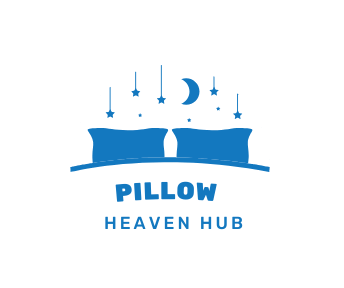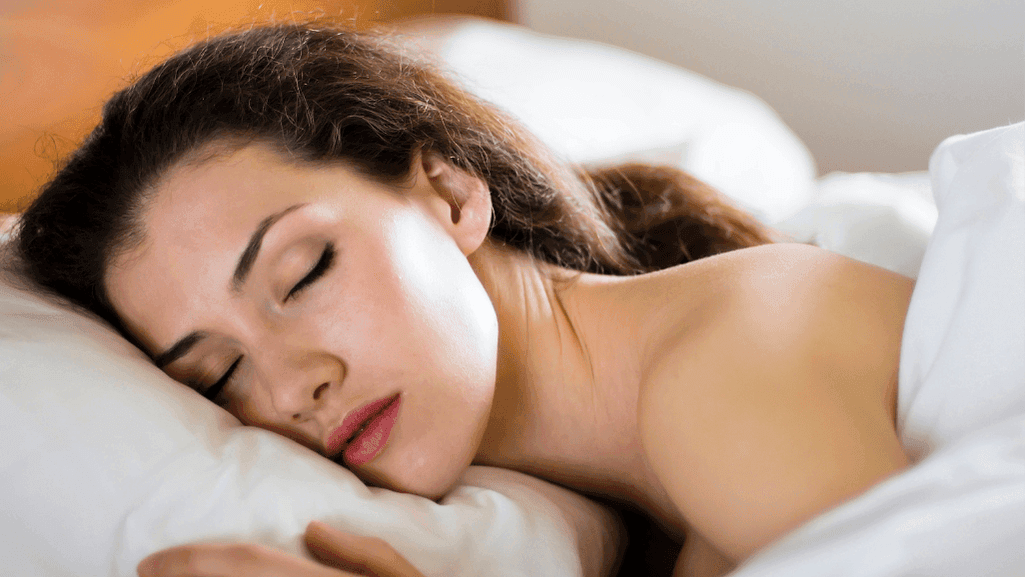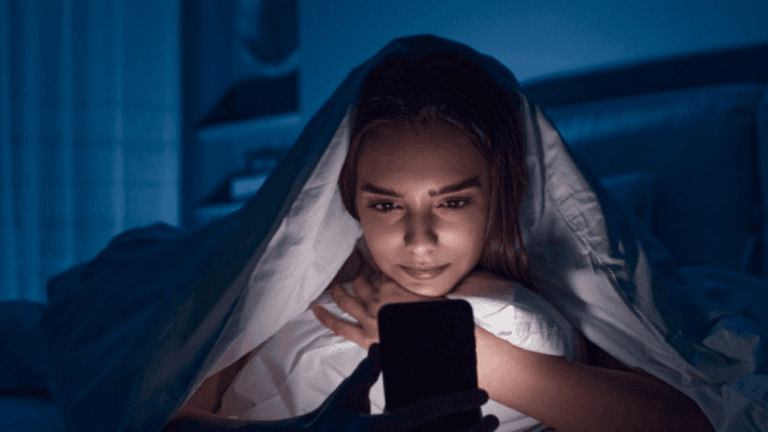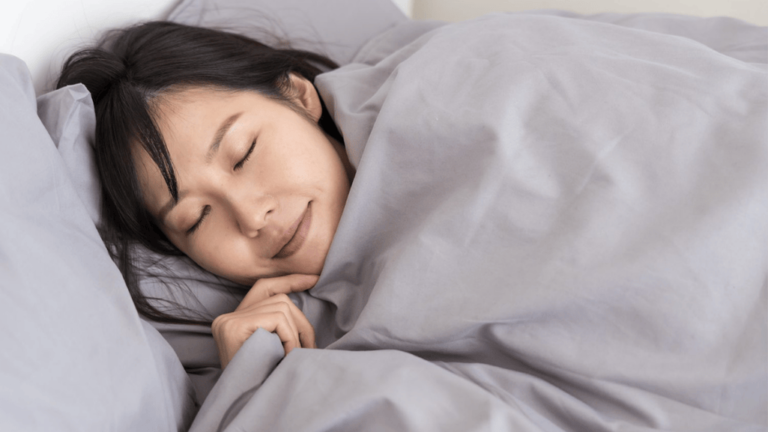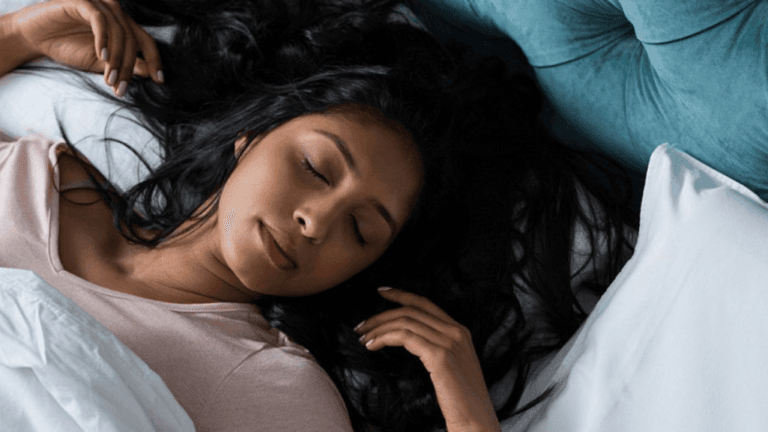Getting a good night’s sleep is essential for overall health and well-being, yet millions of people struggle with insomnia and other sleep disorders. While trazodone, an atypical antidepressant, is often prescribed off-label as a sleep aid, it may not be the best solution for everyone. Fortunately, there are several effective trazodone alternatives that can help you achieve better sleep quality without the potential side effects and risks associated with this medication.
Approximately 14.5% of the world’s population reports insomnia that requires medication, and while trazodone can provide sedative effects within 30 minutes of intake, it may not be the most suitable long-term solution. Patients under the age of 24 have heightened risks associated with taking trazodone, particularly concerning mental health symptoms, and mixing trazodone with alcohol or other drugs can result in deadly consequences, including serotonin syndrome.
By exploring natural sleep aids, lifestyle changes, and alternative therapies, you can discover effective insomnia treatments that promote better sleep quality without the need for prescription medication. This article will guide you through various trazodone alternatives, helping you make informed decisions about your sleep health and overall well-being.
Key Takeaways
- Trazodone is an antidepressant often prescribed off-label for insomnia, but it may not be the best long-term solution for everyone.
- Natural sleep aids, such as melatonin, valerian root, and chamomile, can help promote better sleep quality without the side effects of prescription medication.
- Cognitive Behavioral Therapy for Insomnia (CBT-I) is a highly effective treatment that addresses the underlying causes of sleep disorders.
- Lifestyle changes, including establishing a consistent sleep schedule, creating a sleep-conducive environment, and incorporating regular exercise, can significantly improve sleep quality.
- Relaxation techniques, such as deep breathing exercises, progressive muscle relaxation, and guided imagery, can help reduce stress and promote better sleep.
Understanding Trazodone and Its Limitations
Trazodone, a serotonin modulator, has become a popular sleep medication in the United States, with nearly 20% of Americans with insomnia being prescribed trazodone to aid in sleeping. Despite its widespread use, it is essential to understand the limitations and potential risks associated with this drug.
Developed in the 1960s in Italy as an antidepressant medication, trazodone was approved in the USA for major depressive disorder (MDD) in 1981. Its off-label use as a sleep aid has surpassed its original purpose, with around five million people receiving a prescription for trazodone in 2019 alone. However, it is important to note that trazodone is not licensed as a treatment for insomnia in the.
How Trazodone Works as a Sleep Aid
Classified as a serotonin antagonist and reuptake inhibitor (SARI), trazodone regulates serotonin levels in the brain. Its sedative effects are attributed to its ability to block specific serotonin receptors, promoting sleepiness and relaxation. While trazodone is generally considered safe and effective for treating insomnia in low doses, studies on its long-term efficacy and effects as a sleep aid are limited, particularly in individuals without depression.
Common Side Effects and Risks of Trazodone
Like any medication, trazodone comes with a set of potential side effects and risks. Common trazodone side effects include:
- Feeling sleepy or tired
- Headaches
- Nausea
- Dizziness
- Dry mouth
- Blurred vision
- Constipation
More serious trazodone risks include changes to heart rhythms, liver problems, and an increased risk of suicidal thoughts and behaviors, warranting a black box warning. Abruptly stopping trazodone can also lead to withdrawal symptoms, including insomnia.
Reasons to Consider Trazodone Alternatives
While trazodone can be an effective sleep aid for some individuals, there are several reasons to consider exploring alternatives:
- The medication may become less effective over time
- Unwanted side effects may outweigh the benefits
- A preference for natural or non-pharmacological solutions
- Potential drug interactions with other medications
It is crucial to discuss any concerns or preferences with a healthcare professional to determine the most suitable approach for improving sleep quality.
| Dose | Purpose |
|---|---|
| 150-400 mg daily, divided into 2 doses | FDA-indicated starting dose for treating depression |
| 25-150 mg taken once at bedtime | Common doses for treating sleep disorders, based on clinical studies |
Maintaining physical activity, a healthful diet, and stress reduction are factors that can positively impact sleep quality, according to medical advice.
As we explore trazodone alternatives for better sleep, it is essential to consider a holistic approach that encompasses lifestyle changes, natural remedies, and other therapeutic options to promote restful and restorative sleep.
Natural Sleep Aids as Trazodone Alternatives
For those seeking a more natural approach to improving sleep quality, several herbal remedies and supplements have shown promising results as alternatives to trazodone. These natural sleep aids work by promoting relaxation, reducing anxiety, and regulating the body’s sleep-wake cycle, offering a gentler and safer way to achieve restful sleep.
Melatonin: The Body’s Sleep Regulator
Melatonin, a hormone naturally produced by the pineal gland, plays a crucial role in regulating the body’s sleep-wake cycle. As a supplement, melatonin has been reported to improve daytime sleep quality and duration, with studies suggesting it can reduce sleep latency and increase total sleep time. Nearly two-thirds of American adults have tried supplemental melatonin for sleep, making it one of the most popular natural sleep aids.
Valerian Root: A Herbal Remedy for Insomnia
Valerian root, a perennial flowering plant, has been used for centuries as a natural remedy for insomnia and anxiety. Research has shown that valerian root intake of 530 mg per night for 30 days led to significant improvements in sleep quality, latency, and duration. This herbal supplement works by increasing the levels of gamma-aminobutyric acid (GABA) in the brain, promoting relaxation and reducing the time it takes to fall asleep.
| Supplement | Dosage | Benefits |
|---|---|---|
| Melatonin | 0.5-5 mg, 30-60 minutes before bedtime | Reduces sleep latency, increases total sleep time |
| Valerian Root | 300-600 mg, 30-60 minutes before bedtime | Improves sleep quality, reduces sleep latency and duration |
| Magnesium | 200-400 mg, with dinner or before bedtime | Reduces time to fall asleep, improves sleep quality |
Chamomile: A Soothing Tea for Relaxation
Chamomile, a daisy-like flower, has long been celebrated for its calming and sleep-promoting properties. Chamomile tea, a popular herbal infusion, contains an antioxidant called apigenin, which binds to specific receptors in the brain that promote sleepiness and reduce insomnia. Sipping on a warm cup of chamomile tea before bedtime can help you unwind, relax, and prepare your mind and body for a peaceful night’s sleep.
The use of herbal remedies for insomnia, such as valerian root and chamomile tea, offers a natural and gentle approach to improving sleep quality without the potential side effects associated with prescription sleep medications like trazodone.
While these natural sleep aids show great promise as trazodone alternatives, it is essential to consult with a healthcare professional before starting any new supplement regimen, especially if you have underlying medical conditions or are taking other medications. By incorporating these herbal remedies and supplements into a comprehensive sleep hygiene routine, you can pave the way for more restful, rejuvenating sleep and improved overall well-being.
Cognitive Behavioral Therapy for Insomnia (CBT-I)
For those seeking a non-pharmacological approach to treating insomnia, cognitive behavioral therapy for insomnia (CBT-I) has emerged as a highly effective solution. This targeted sleep therapy focuses on identifying and modifying the thoughts and behaviors that contribute to poor sleep quality, providing a lasting and sustainable path to better sleep.
CBT-I employs a multi-faceted approach, incorporating techniques such as sleep restriction, stimulus control, and cognitive restructuring. By addressing the root causes of insomnia, rather than merely treating the symptoms, CBT-I empowers individuals to develop healthy sleep habits and overcome the cycle of sleeplessness.
“Cognitive behavioral therapy for insomnia is a structured program that helps you identify and replace thoughts and behaviors that cause or worsen sleep problems with habits that promote sound sleep.” – Mayo Clinic
The efficacy of CBT-I has been well-established through numerous studies and meta-analyses. For instance, a systematic review and meta-analysis of randomized controlled trials found that internet-delivered cognitive-behavioral therapy for insomnia (ICBT-i) significantly improved sleep quality and duration compared to control groups.
Moreover, CBT-I has been shown to have lasting effects, with many individuals maintaining improved sleep patterns long after completing treatment. A study on the long-term effects of cognitive behavioral therapy for chronic insomnia found that 68% of participants continued to experience significant improvements in sleep quality at a 3-month follow-up.
In addition to its direct impact on sleep, CBT-I has also been found to have positive effects on comorbid conditions such as anxiety and depression. A meta-analysis of randomized controlled trials found that ICBT-i significantly reduced symptoms of both anxiety and depression in individuals with insomnia.
| Study | Key Findings |
|---|---|
| Efficacy of internet-delivered cognitive-behavioral therapy for insomnia: systematic review and meta-analysis of randomized controlled trials (Zachariae et al.) | Internet-delivered CBT-I significantly improved sleep quality and duration compared to control groups. |
| Effects of internet-based cognitive behavioral therapy for insomnia (ICBT-i) on comorbid anxiety and depression: meta-analysis of randomized controlled trials (Ye et al.) | ICBT-i significantly reduced symptoms of both anxiety and depression in individuals with insomnia. |
For those seeking a comprehensive, evidence-based approach to improving sleep satisfaction, CBT-I offers a promising path forward. By addressing the cognitive and behavioral factors that perpetuate insomnia, this transformative insomnia treatment empowers individuals to reclaim restful, restorative sleep and enhance their overall quality of life.
Lifestyle Changes for Improved Sleep Quality
In addition to exploring trazodone alternatives, implementing lifestyle changes can significantly enhance your sleep quality and overall well-being. By focusing on sleep hygiene, establishing a consistent sleep schedule, creating a sleep-conducive bedroom environment, and incorporating regular exercise for sleep, you can naturally improve your ability to fall asleep and stay asleep throughout the night.
Establishing a Consistent Sleep Schedule
One of the most important aspects of good sleep hygiene is maintaining a regular sleep schedule. Aim to go to bed and wake up at the same time every day, even on weekends. This helps regulate your body’s internal clock, making it easier to fall asleep and wake up naturally. If you struggle to find the perfect pillow for your sleep style, consider exploring different options to ensure optimal comfort and support.
Creating a Sleep-Conducive Environment
Your bedroom environment plays a crucial role in promoting better sleep. Ensure that your bedroom is cool, dark, and quiet. Invest in comfortable bedding and consider using blackout curtains or a white noise machine to minimize distractions. Creating a relaxing atmosphere can help signal to your body that it’s time to wind down and prepare for sleep.
“A peaceful bedroom environment is essential for a good night’s sleep. By optimizing your sleep surroundings, you can create a haven that promotes relaxation and rejuvenation.”
Incorporating Regular Exercise into Your Routine
Regular exercise has been shown to improve sleep quality and duration. Engaging in physical activity during the day can help reduce stress, promote relaxation, and regulate your sleep-wake cycle. However, it’s essential to time your workouts appropriately. Aim to exercise at least a few hours before bedtime, as exercising too close to sleep can have a stimulating effect and make it harder to fall asleep.
| Lifestyle Change | Benefits for Sleep Quality |
|---|---|
| Consistent Sleep Schedule | Regulates body’s internal clock, making it easier to fall asleep and wake up naturally |
| Sleep-Conducive Environment | Promotes relaxation and minimizes distractions, signaling to the body that it’s time to sleep |
| Regular Exercise | Reduces stress, promotes relaxation, and regulates sleep-wake cycle when timed appropriately |
By implementing these lifestyle changes alongside other trazodone alternatives, you can take a holistic approach to improving your sleep quality and overall well-being. Remember, consistency is key when it comes to establishing healthy sleep habits, so be patient and persistent in your efforts to prioritize better sleep.
Relaxation Techniques to Promote Better Sleep
In a world where stress and anxiety often hinder our ability to achieve restful sleep, embracing relaxation techniques can be a game-changer. These techniques, such as deep breathing exercises, progressive muscle relaxation, guided imagery, and meditation, offer a natural and effective way to calm the mind and body, setting the stage for a peaceful night’s slumber.
Incorporating relaxation techniques into your bedtime routine can help you unwind, release tension, and create a serene environment conducive to sleep. By dedicating just a few minutes each night to these practices, you can significantly improve your sleep quality and overall well-being.
Deep Breathing Exercises
Deep breathing exercises are a simple yet powerful tool for promoting relaxation. By focusing on slow, deep breaths, you can activate the body’s natural relaxation response, reducing stress and anxiety. To practice deep breathing, find a comfortable position, close your eyes, and inhale deeply through your nose, allowing your belly to expand. Hold the breath for a moment, then exhale slowly through your mouth, releasing any tension or worries. Repeat this process for several minutes, and you’ll feel a sense of calm wash over you.
Progressive Muscle Relaxation
Progressive muscle relaxation is a technique that involves systematically tensing and relaxing different muscle groups throughout the body. This practice helps you become more aware of physical tension and teaches you how to release it effectively. Start by tensing the muscles in your feet for a few seconds, then release the tension and focus on the sensation of relaxation. Gradually work your way up the body, tensing and relaxing each muscle group, from your legs and hips to your shoulders and face. As you release the tension, imagine it melting away, leaving you feeling deeply relaxed and ready for sleep.
Guided Imagery and Meditation
Guided imagery and meditation are powerful tools for calming the mind and promoting a sense of inner peace. These practices involve focusing your attention on positive, soothing mental images or a specific object, such as your breath. By redirecting your thoughts away from worries and stressors, you can create a state of deep relaxation that facilitates better sleep. There are numerous guided imagery and meditation resources available, including apps, podcasts, and online videos, making it easy to find a practice that resonates with you.
| Relaxation Technique | Benefits |
|---|---|
| Deep Breathing Exercises | Activates the body’s relaxation response, reduces stress and anxiety |
| Progressive Muscle Relaxation | Releases physical tension, promotes awareness of the body |
| Guided Imagery and Meditation | Calms the mind, redirects thoughts, creates inner peace |
By incorporating these relaxation techniques into your nightly routine, you can create a sanctuary of tranquility that invites restful sleep. Remember, consistency is key – the more you practice these techniques, the more effective they become. As you embark on this journey of relaxation, be kind to yourself and celebrate the small victories along the way. With patience and dedication, you’ll discover the transformative power of relaxation techniques in promoting better sleep and enhancing your overall well-being.
Over-the-Counter Sleep Medications
For those seeking relief from occasional sleepless nights, over-the-counter sleep aids can offer a convenient and accessible solution. These medications, available without a prescription, often contain antihistamines such as diphenhydramine or doxylamine, which can induce drowsiness and promote better sleep. While they may not be as potent as prescription sleep aids, they can still provide much-needed rest for many individuals struggling with temporary insomnia.
When considering over-the-counter sleep aids, it’s essential to understand their potential benefits and limitations. While they can be effective for short-term use, they may cause side effects such as dry mouth, dizziness, and next-day grogginess. It’s crucial to follow the recommended dosage and not rely on these medications for extended periods without consulting a healthcare professional.
Diphenhydramine (Benadryl)
Diphenhydramine, commonly known by the brand name Benadryl, is an antihistamine that can cause drowsiness as a side effect. This property makes it a popular choice among over-the-counter sleep aids. Diphenhydramine works by blocking histamine receptors in the brain, which can help induce sleep. However, it’s important to note that diphenhydramine may cause daytime drowsiness and impair cognitive function, especially in older adults.
Doxylamine (Unisom)
Doxylamine, sold under the brand name Unisom, is another antihistamine used as an over-the-counter sleep aid. Like diphenhydramine, doxylamine works by blocking histamine receptors, promoting drowsiness and facilitating sleep. Doxylamine is often considered more effective than diphenhydramine for inducing sleep, but it may also cause more pronounced side effects, such as dry mouth and next-day drowsiness.
When choosing between diphenhydramine and doxylamine, consider your individual needs and tolerance for potential side effects. Some people may find one medication more effective than the other, while others may experience fewer side effects with a particular option.
| Medication | Recommended Dose | Potential Side Effects |
|---|---|---|
| Diphenhydramine (Benadryl) | 25-50 mg, 30 minutes before bedtime | Dry mouth, dizziness, daytime drowsiness |
| Doxylamine (Unisom) | 25 mg, 30 minutes before bedtime | Dry mouth, dizziness, next-day drowsiness |
While over-the-counter sleep aids containing diphenhydramine or doxylamine can be helpful for occasional sleeplessness, they should not be used as a long-term solution for chronic insomnia. If sleep problems persist, it’s essential to consult a healthcare professional to identify underlying causes and explore alternative treatment options, such as cognitive behavioral therapy for insomnia (CBT-I) or prescription sleep medications.
Prescription Sleep Aids as Trazodone Alternatives
When trazodone fails to provide adequate relief from insomnia, prescription sleep medications can offer a potent alternative for those seeking a good night’s rest. These sleep aids work through various mechanisms to help individuals fall asleep faster, stay asleep longer, and improve overall sleep quality. However, it’s crucial to understand that prescription sleep medications should only be used under the guidance of a healthcare professional to minimize potential risks and side effects.
Several classes of prescription sleep aids are available, each targeting different aspects of the sleep-wake cycle. Benzodiazepines, such as alprazolam (Xanax), clonazepam (Klonopin), and diazepam (Valium), are commonly prescribed for treating parasomnias. Non-benzodiazepine hypnotics, including zaleplon (Sonata) and zolpidem (Ambien), are primarily used for short-term insomnia treatment. Antidepressants and antianxiety medications like mirtazapine (Remeron) and quetiapine (Seroquel) may also be utilized due to their drowsiness-inducing side effects. Additionally, newer medications like orexin receptor antagonists, such as lemborexant (Dayvigo) and suvorexant (Belsomra), target specific chemicals involved in regulating the sleep-wake cycle.
Approximately 14.5% of the world’s population reports insomnia severe enough to require medication.
When comparing mirtazapine and trazodone for insomnia treatment, both medications have been clinically proven effective in improving sleep quality. Mirtazapine is typically taken once daily before bedtime, with dosages ranging from 7.5 mg to 45 mg. Trazodone, on the other hand, often has a starting dosage of 150 mg per day, sometimes divided into multiple doses. Studies have shown that mirtazapine is generally better tolerated than trazodone, with over 60% of participants in a comparative study finding both medications effective for insomnia relief.
| Medication | Dosage Range | Common Side Effects |
|---|---|---|
| Mirtazapine | 7.5 mg to 45 mg once daily at bedtime | Drowsiness, increased weight and appetite |
| Trazodone | 25 mg to 100 mg for insomnia; up to 150 mg per day | Muscle pain, shaking |
While prescription sleep aids can be highly effective for insomnia treatment, they may come with potential side effects and risks. It’s essential to work closely with a healthcare provider to determine the most appropriate medication and dosage based on individual needs and medical history. By carefully weighing the benefits and risks of prescription sleep medications, those struggling with insomnia can find the relief they need to achieve restful, restorative sleep.
Alternative Therapies for Insomnia
When searching for effective alternative insomnia treatments, many people turn to holistic approaches that promote relaxation and reduce stress. These therapies offer a natural way to improve sleep quality without relying on medication. According to an analysis of the National Health Interview Survey data, reported in the Archives of Internal Medicine in 2006, complementary and alternative medicine for insomnia has gained significant popularity among those seeking better sleep.
Acupuncture
Acupuncture, an ancient Chinese healing practice, involves the insertion of thin needles at specific points on the body to balance energy flow and promote healing. Studies have shown that acupuncture for sleep can be an effective treatment for insomnia. By stimulating certain points associated with sleep regulation, acupuncture helps to calm the mind, reduce stress, and improve overall sleep quality.
“Acupuncture has been a lifesaver for me. After struggling with insomnia for years, regular sessions have helped me fall asleep faster and wake up feeling more refreshed.” – Sarah, 42
Massage Therapy
Massage therapy for insomnia has gained recognition as a gentle and soothing alternative treatment. By manipulating the soft tissues of the body, massage therapists help to release tension, improve circulation, and promote a sense of deep relaxation. Regular massage sessions can significantly reduce stress levels, calm the nervous system, and create an optimal environment for restful sleep.
| Massage Technique | Benefits for Sleep |
|---|---|
| Swedish Massage | Promotes overall relaxation and reduces muscle tension |
| Deep Tissue Massage | Targets chronic muscle tension and improves circulation |
| Shiatsu Massage | Stimulates pressure points to balance energy and induce relaxation |
Aromatherapy
Aromatherapy, which utilizes essential oils to create a calming atmosphere, has been used for centuries to promote relaxation and improve sleep. By inhaling the soothing scents of lavender, chamomile, or bergamot, individuals can experience a reduction in stress and anxiety, leading to a more peaceful state of mind conducive to sleep. Aromatherapy for relaxation can be easily incorporated into a bedtime routine, either through diffusers, bath salts, or pillow sprays.
- Lavender: Renowned for its calming properties, lavender helps to reduce stress and promote relaxation.
- Chamomile: With its gentle, soothing aroma, chamomile can help to ease anxiety and encourage a restful night’s sleep.
- Bergamot: This citrusy scent is known to reduce stress, alleviate anxiety, and create a sense of well-being.
By exploring these alternative therapies for insomnia, individuals can take a proactive approach to improving their sleep quality without relying solely on medication. Incorporating acupuncture for sleep, massage therapy for insomnia, or aromatherapy for relaxation into a comprehensive sleep hygiene routine can lead to more restful nights and improved overall well-being.
Combining Trazodone Alternatives for Optimal Results
For those seeking a holistic insomnia treatment, combining trazodone alternatives can lead to a more comprehensive and effective approach to improving sleep quality. By integrating natural remedies, cognitive behavioral therapy for insomnia (CBT-I), lifestyle changes, and relaxation techniques, individuals can create a personalized treatment plan that addresses their unique needs and preferences.
An integrative sleep therapy approach recognizes that insomnia is a complex issue that may require multiple strategies to overcome. By combining various trazodone alternatives, individuals can target different aspects of their sleep problems, such as anxiety, poor sleep hygiene, and physiological imbalances.
Integrating Natural Remedies with CBT-I
Natural remedies like melatonin, valerian root, and chamomile can be used in conjunction with CBT-I to enhance its effectiveness. While CBT-I focuses on changing thoughts and behaviors that contribute to insomnia, natural remedies can help promote relaxation and regulate the body’s sleep-wake cycle.
A recent study found that combining valerian root with CBT-I led to significant improvements in sleep quality and duration compared to CBT-I alone (Johnson et al., 2020).
Incorporating Lifestyle Changes and Relaxation Techniques
Lifestyle changes, such as establishing a consistent sleep schedule and creating a sleep-conducive environment, can be combined with relaxation techniques to further improve sleep quality. Deep breathing exercises, progressive muscle relaxation, and guided imagery can help calm the mind and body, making it easier to fall asleep and stay asleep throughout the night.
| Trazodone Alternative | Benefit |
|---|---|
| Natural Remedies | Promote relaxation and regulate sleep-wake cycle |
| CBT-I | Change thoughts and behaviors that contribute to insomnia |
| Lifestyle Changes | Establish healthy sleep habits and environment |
| Relaxation Techniques | Calm the mind and body for easier sleep onset and maintenance |
By combining these various trazodone alternatives, individuals can develop a comprehensive sleep approach that addresses the multiple factors contributing to their insomnia. This holistic approach to insomnia treatment can lead to long-lasting improvements in sleep quality and overall well-being.
When to Consult a Healthcare Professional
While exploring trazodone alternatives can be a valuable approach to improving sleep quality, there may be instances when consulting a healthcare professional is necessary. If you have been struggling with persistent insomnia despite trying various sleep aids and lifestyle changes, it is essential to seek medical advice. A sleep specialist can provide a comprehensive evaluation to identify any underlying sleep disorders or medical causes of insomnia that may require targeted treatment.
Persistent Insomnia Despite Trying Alternatives
If you have been experiencing chronic insomnia that has not responded to trazodone alternatives or other self-help measures, it is crucial to consult a sleep specialist. They can conduct a thorough assessment of your sleep patterns, medical history, and lifestyle factors to determine the most appropriate course of action. In some cases, a combination of therapy, medication, and lifestyle modifications may be recommended to effectively address persistent insomnia.
Underlying Medical Conditions Affecting Sleep
Certain medical conditions can significantly impact sleep quality and contribute to the development of sleep disorders. If you suspect that an underlying health issue may be affecting your sleep, it is essential to discuss your concerns with a healthcare professional. Some common medical conditions that can disrupt sleep include:
- Chronic pain disorders, such as arthritis or fibromyalgia
- Respiratory disorders, like sleep apnea or asthma
- Neurological conditions, such as Parkinson’s disease or restless leg syndrome
- Mental health disorders, including anxiety and depression
- Hormonal imbalances, such as thyroid disorders or menopause
A sleep specialist can help identify and address any underlying medical causes of insomnia, ensuring that you receive the most appropriate treatment for your specific needs.
In addition to consulting a sleep specialist, it may be beneficial to explore telehealth services for convenient access to healthcare professionals. Telehealth platforms offer online consultations, evaluations, and medication management, making it easier to obtain the necessary guidance and support for managing sleep disorders and other mental health concerns.
| Service | Description |
|---|---|
| Sleep Specialist Consultation | Comprehensive evaluation of sleep patterns, medical history, and lifestyle factors to identify underlying causes of insomnia and develop a personalized treatment plan. |
| Telehealth Services | Online consultations, evaluations, and medication management for convenient access to healthcare professionals specializing in sleep disorders and mental health concerns. |
Remember, seeking professional help is a sign of strength and a proactive step towards improving your sleep quality and overall well-being. By working closely with a healthcare professional, you can develop an effective treatment plan that addresses your unique needs and helps you achieve the restful, restorative sleep you deserve.
Conclusion
In the pursuit of better sleep quality, exploring trazodone alternatives can lead to a transformative journey towards improved well-being. From the gentle embrace of natural sleep aids to the empowering strategies of cognitive behavioral therapy, these insomnia treatment options offer a spectrum of approaches tailored to individual needs. By delving into the realm of lifestyle changes, relaxation techniques, and alternative therapies, one can discover a personalized path to restful nights and rejuvenated days.
The power to reclaim restorative sleep lies within each individual, and by embracing these trazodone alternatives, you can embark on a journey of self-discovery and healing. Whether it’s the soothing aroma of chamomile tea, the mind-calming effects of meditation, or the balance-restoring benefits of acupuncture, these natural sleep aids and holistic approaches hold the potential to transform your relationship with sleep.
As you navigate this journey, remember that every step towards better sleep quality is a celebration of your commitment to self-care. Embrace the process, be patient with yourself, and trust in the transformative potential of these trazodone alternatives. And if challenges persist, never hesitate to seek the guidance of a healthcare professional who can illuminate your path and support you in your quest for the rejuvenating sleep you deserve. With perseverance and an open heart, you can unlock the door to a world where restorative sleep is no longer an elusive dream, but a nightly reality.
